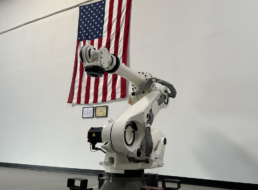Axiom chief revenue officer Tejpaul Bhatia will be the space station company’s new CEO, the company announced Friday afternoon.
Setting the scene: Bhatia is taking over at a critical time for Axiom. Facing financial strain from losses on the private astronaut missions it used to pave the way for the company’s future space station, Axiom now needs to deliver the goods to replace the ISS by 2030.
Old faces: Interim CEO and cofounder Kam Ghaffarian will continue to serve as the company’s executive chairman.
“Axiom Space was founded to expand the boundaries of what’s possible in space, and Tej has been instrumental in turning that vision into a reality,” Ghaffarian said in a statement. “His blend of entrepreneurial drive, global perspective, and deep commitment to our mission will ensure Axiom Space’s leadership at the forefront of the rapidly growing commercial space market.”
Meet the new CEO: Bhatia joined Axiom in 2021 with little space experience, having previously worked at Google and Citibank.
As CRO, he played a key role in discussions with international governments to fly astronauts on commercial missions to space, according to a press release. He has also had a hand in Axiom’s most high-profile collaborations outside the space industry, including working with Prada to design spacesuits and partnering with Nokia to add comms to the suits.
“We are accelerating our investment in next-generation technologies—spacesuits, orbital infrastructure, and microgravity research and manufacturing—and we’re actively seeking passionate, visionary engineers, technologists, and entrepreneurs who want to help build humanity’s future in space,” Bhatia said in a statement.
Action agenda: The company is preparing to launch its first two orbital data center nodes to LEO this year in a bid to boost processing power in orbit. It’s also less than two years away from launching its power module to dock with the ISS—the first step to building its commercial space station, which is expected to detach from the ISS and operate independently in early 2028.




